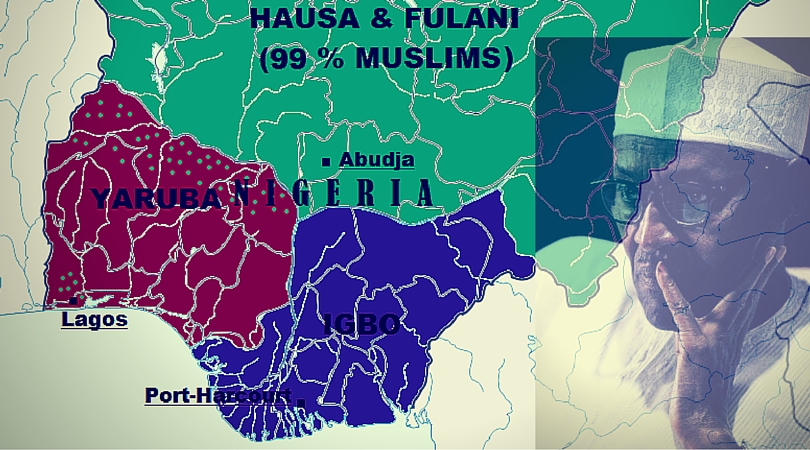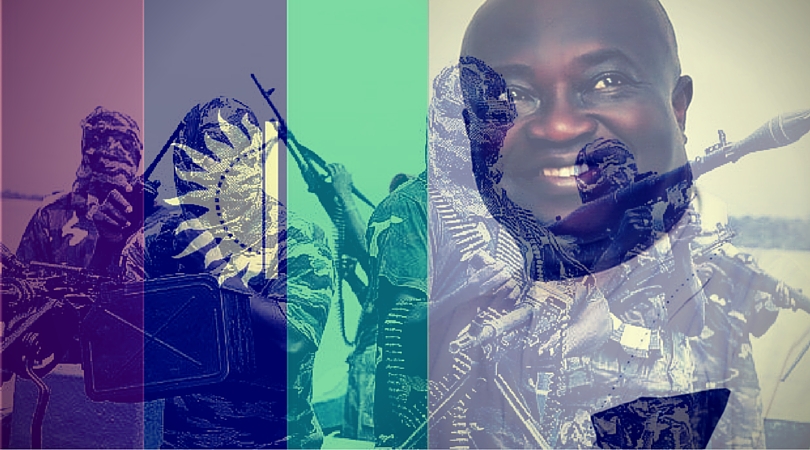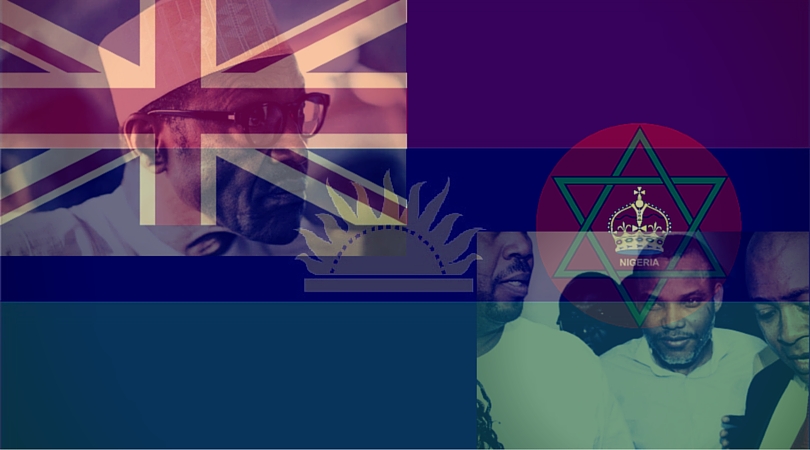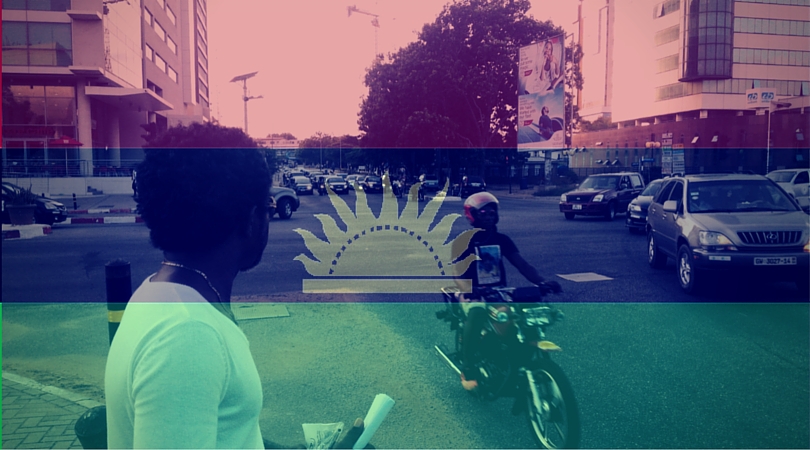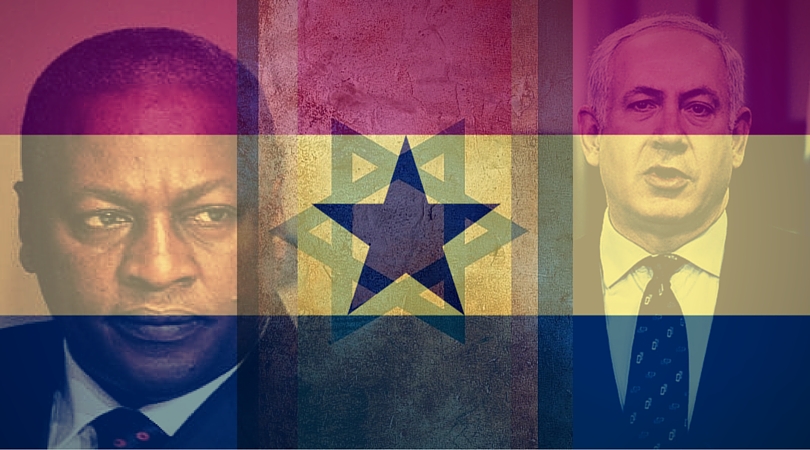The Return of the Bakassi Boys in Nigeria
I am not African, neither have I ever planted foot on that great continent. I am a Jew, living in Israel. As such, I am sensitive to the insensitivities of the world. Granted that I may be missing facts, nuances, that I may possess important errors in my view of the goings on in Nigeria; still, as a Jew and as an Israeli I feel that I do “get it”, that the situation on the ground demands that an outsider’s voice be spoken and heard.
For the great hordes that have no clue, because it barely bears mention in the Western Press, there is a war going on in Nigeria, a harsh and diabolical war. In truth, there are several simultaneous wars going on in Nigeria and it is difficult to always know where alliances fall and the truth behind the politicians’ pleas and actions.
One particular war is being waged in the Northern, Middle and South Eastern regions of Nigeria, where Muslim Fulani Herdsmen murder civilians and military of the tribes of the Igbo, Yoruba, Niger-Deltans and Middle Belters. The Fulani attacks display ferocious violence and are without mercy. Thousands have been killed by Fulani Herdsmen over the last year, while the Nigerian government, also run by the infamous Muslim leader, Muhammadu Buhari, takes little or no action.
Indeed, it is not only the Nigerians that take little or no action, but also Europe and the United States of America, both of which seem to show no concern for the Muslim genocide of the Christian tribes of Nigeria. Of course, those tribes claiming also descent from the Jewish-Israelite Nation, such as the Igbo, are left with little hope from the international community as well. Indeed, although Muhammadu Buhari and his reckless and cruel regime came about through national elections, it is understood by many that his appointment was facilitated through strong American and British efforts. The French may as well be implicated.
And so, the genocide of Biafrans continues and unfortunately, not much has changed since the brutal genocide of Igbo and others during the first Biafran tragedy approximately fifty years ago. The solution of the dilemma, for the Igbo and the other tribes facing the Fulani onslaught, therefore, is simple. It is made simple by the fact that they have no one to count on, not their national government and not the nations of the world. It is only they that will stop this terrible and wanton destruction of their people and their property and it is only they that can stand up to the murderous Fulani Herdsmen assault.
Enter Abia State Governor, Dr. Okezie Ikpeazu , and enter the return of the Bakassi Boys. The Bakassi Boys first gained fame in the early part of the century, becoming vigilantes against crimes against the Igbo and other tribes in various regions of Nigeria, first achieving fame in the Igbo region in Aba and later on in cities such as Onitsha and Owerri.
The assaults of the Bakassi Boys, armed with guns and machetes, are not pretty, to say the least. They are murderous and cruel; but, in the past at least, they were effective. In a country that can be likened to the American Wild West, where the gunslinger ruled and where the lines between government enforcement of the law and private vigilante groups was always confused and without true significance, the situation today in Nigeria may unfortunately require the same solution.
Dr. Ikpeazu has recently called for the reorganization of the Bakassi Boys, because the situation in his Abia State has once again simply got out of hand. Fulani Herdsmen are again killing, raping and destroying whole areas of the region and there is no national or international power willing or ready to stop the bloodshed. As such, he has directed the local governments under his control to allow for and to even encourage the return of the vigilante group.
In a public statement, Ikpeazu has “instructed and equipped state security agencies in the state to ensure watertight security around our borders and towns against any form of attack, ” and has renamed the Bakassi Boys the State Vigilante Services (VGS).
I write this article not only to the ignorant, blind and deaf West, but also and perhaps mainly to the people of the Igbo, to the people of Yoruba, the Niger-Deltans, the Middle Belters. Stand strong. If you need preserve your own through cruel rebuttal of the Fulani murderers, so be it. Do not expect the world to praise you; in sad fact, you may expect world condemnation.
As a Jew and as an Israeli, I know well the silence and hypocrisy of the world.
The Bakassi Boys and those that support them stand alone against a despicable enemy and a quiet and hushed world. It is a sad truth about our humanity that has been repeated on every single continent in every single era of world history.
Does Israel have a Biafra Strategy?
In 1914 the British took three distinct areas, Lagos Colony, Hausa, and Biafra and forced them together. This action was congruent with a similar policy in Iraq, Afghanistan, Israel, and India. The British had a particular paternal view of their colonies and because they decried the seemingly evil policies of France, Germany, and Belgium, they promoted their policies as civilized and caring.
Nothing is further from the truth. Most of the countries listed above are still suffering from the conflict oriented policy of the British Empire in the early 20th century. This policy thrived on forcing rivals to share space and backing non-indigenous peoples as rulers or agitators in that space.
The Igbo in Nigeria make up the third largest tribe, but in Biafra they are well in the majority. The fact that Nigeria as a British backed government has forced the Igbo to suffer at the hands of their worst enemies is only due to British interests. Before 1914 the Hausa never had access to the cost. The British backed them by forcing Biafra into Nigeria, thus paving the way to suppressing what they saw as the biggest threat to British control, Biafran independence.
A similar set of circumstances occurred in Israel. As the early Jewish residents busied themselves with building their Land and preparing to bring more and more Jewish exiles back home, the British decided to offset the rapid Jewish growth with new Arab workers and immigrants. To be fair this policy began with the Turks who allowed and encouraged Arab migration from other areas in the Ottoman Empire to the Land of Israel in order to offset the success of the early Zionists. Arabs often point out that they had lived in the Land of Israel for centuries, but they use statistics from 1912, because that was the year they finally became significant enough as a population throughout the Land. The British continued this policy, going as far as banning Jewish immigration altogether.
As mentioned above, a similar policy was implemented in Iraq, Afghanistan, and India. The British kept their rule in a all of these places by stirring discontent and thwarting independence movements through bribery and conflating the local leadership and colonial government.
Israel Needs a Clear Biafra Strategy
To truly be free and rectify the sins of European colonialism, Biafra must be allowed its independence. Israel needs to harness its resources and influence to force this outcome. They can do this by using the South-Sudan model or by encouraging its new found East Africa partners to push for Biafran independence.
If Israel fails at setting a clear strategy in a flailing Nigeria, it risks losing a potential ally as well as a bulwark against expanding Islamic influence. Bibi has been adept at sensing and grabbing onto the shifting currents in the Middle East and Africa. Biafra is key to his current strategy of building trusted and reliable allies in the former European colonies in Africa. It would be wise for him to formerly push for a stable and free Biafra.
[podcast] From Nigeria to Ghana: Free Biafra
While attending the Africa Israel Initiative I had the opportunity to sit down with our very own Oscar Lee face to face in Accra, Ghana. Besides being a gracious host and a friend we shared some time on the issue of Biafra and what Israel can do to help. Have a listen!
Ghana’s Growth a Beacon for a Potential Israeli Partnership
When I landed in Accra, Ghana yesterday it had been just under 16 years since my last visit. The world has changed a few times over since then. Internet technology and communication has created a smaller world, a world where people from any country can dialogue and discuss with counterparts around the world.
Still, some things were the same. Women selling food and drinks from on top of their heads, children pointing to their mouth and asking for charity (although far less than what I remembered), and a distinct dichotomy between rich and poor.
In the world’s eye Africa has always been behind. Whether out of ignorance or passive racism the perception that Africa is a bunch of unstable countries, steeped in corruption, and reliant in international aid has persisted well into this century.
Like anything else, the Western world views the world through a particular historical and cultural context. It is true Africa and especially sub-Saharan Africa has had its fair share of chaos brought upon it from a clear neo-colonial agenda that saw the Western world take advantage of ravaged economies, artificial boundaries, and dictatorships it helped to foster.
Ghana as a Model
What has always made Ghana fascinating to me is the relative stability it has compared to many of its counterparts across Africa, although we can point now to many African countries, especially in the lakes region and Eastern Africa that have achieved this as well, Ghana has always seemed to exhume some sort of alternate reality as opposed to other places.
At first glance, Ghana should have similar problems with geopolitical uncertainty as other African countries. It is an artificial construct of the British merging a mosaic of African tribal nations together. It has a strong Muslim population along with a devout Christian populace. There are vast amounts of poor people, coupled with a strong wealthy upper class.
Yet, with all of the above, Ghana has seemed to skip the chaos. Part of the reason for this is that it did not sink into conflict after independence in 1957, but rather was built in a stable one party rule albeit sometimes military. However, it transitioned when it had into a multi-party rule in 1992, which has allowed for more voices to be heard and aided the growth of an exceptional economy. Although Ghana needed an IMF bailout due to a spiraling debt, it’s oil production and multi layered economy is a window for what can be in the future.
Ghana as an Ideal Partner for Israel
Ghana has appears to be strategically critical by Israel as a buffer against the spread of radical Islam into the Sub-Sahara. This takes more importance after Israel lost a growing ally in Nigeria, with the ascendancy of Mohammed Buhari.
Yet, building a strong relationship requires more than weapons, it needs real economic cooperation. This is where Israeli companies and startups would be able to take advantage of Ghana’s stability and fast paced growth. Accra may still be a third world capital, but it is quickly transforming into a modern hub in Western Africa.
Although Israel has grown close with East African countries and seems to be placing more of its emphasis on those countries, Ghana would be a great place to start to rebuild its West African strategy, after its miscalculation with Nigeria.

